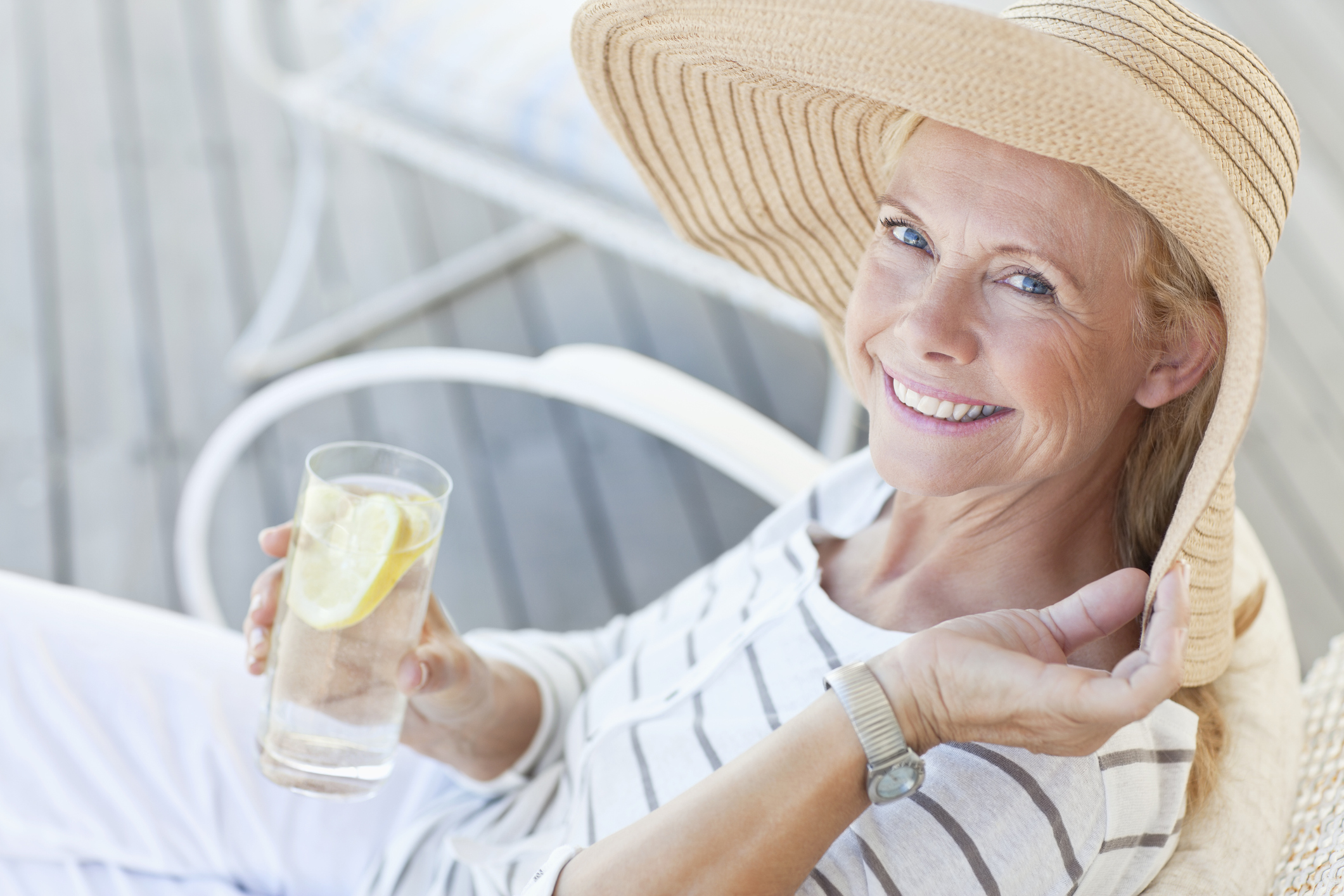Get Easy Health Digest™ in your inbox and don’t miss a thing when you subscribe today. Plus, get the free bonus report, Mother Nature’s Tips, Tricks and Remedies for Cholesterol, Blood Pressure & Blood Sugar as my way of saying welcome to the community!
One more reason for seniors to stay cool: Neurodegeneration

If you’re over 65, you need to be extra careful about how much time you spend in the sunshine this summer.
Sure, we’ve been told spending a little time in the sun helps us soak up some natural vitamin D.
But if you’re out in the sun too long without the right sunscreen, you’re inviting skin damage that can lead to premature aging and skin cancer.
There’s also the threat of heat stroke, a dangerous condition that can sneak up on you if you get overheated and don’t take the time to cool off.
Now, we’re finding out that staying overheated for too long can lead to another danger for seniors… it can actually lower your body’s ability to clean out damaged cells that could lead to diseases, like Parkinson’s and Alzheimer’s diseases.
Autophagy: your body’s self-cleaning system
Autophagy is the body’s way of cleaning out damaged cells in order to regenerate newer, healthier cells.
Picture one of those street cleaning machines that travel around, sweeping up debris and clearing the way for people to walk without stepping on garbage.
According to Dr. Priya Khorana, a nutrition educator at Columbia University, autophagy is especially important when our cells are stressed, by toxins and other factors. It protects us and ultimately helps increase our lifespan.
At the cellular level, the benefits of autophagy include removing toxic proteins from the cells that are responsible for neurodegenerative diseases like Parkinson’s and Alzheimer’s.
Autophagy needs a cooling down period to keep working
“Autophagy declines as we age, so this means cells that no longer work or may do harm are allowed to multiply, which is the MO of cancer cells,” explains registered dietitian Scott Keatley.
And, by spending too much time in the heat without allowing their body a chance to cool down, older adults are adding insult to injury.
In April, researchers from the University of Ottawa presented their research into the way that a cooling down period could improve autophagic function.
Their subjects, a group of 17 older adults, spent nine hours in a room heated to 104 degrees F. In the middle of the day, seven of the volunteers had a two-hour break in a room that was a more comfortable temperature of 73 degrees F.
The volunteers who were given a chance to cool down showed improved markers of autophagic function, compared to those who had endured high heat for the full nine hours.
These findings suggest that providing cooling centers or other places where senior adults can purposefully cool down during heat waves may help them avoid diseases like Alzheimer’s and Parkinson’s, which occur when the toxic buildup of proteins goes unchecked.
Heat stroke is a preventable medical emergency
Heat stroke is a medical emergency. Recognizing the signs of heatstroke and reacting with the proper treatment is crucial. Here’s how to spot the signs of heat stroke, in yourself or others.
Here are some ways to avoid heatstroke this summer:
- Stay hydrated. Water is best, or fruit or vegetable juice. Avoid drinks that have alcohol or caffeine.
- If your home doesn’t have air conditioning, keep your shades or blinds closed during the hottest part of the day. Open your windows at night.
- Use cold compresses on your forehead and neck to stay cool. Consider taking a lukewarm to cool shower or tub bath during the hottest part of the day.
- If your house is hot, try to spend the mid-day hours in a place with air conditioning, such as a mall, library, senior center or a friend’s home.
- Dress for the weather. Some people find natural fabrics like cotton to be cooler than synthetic fibers.
- Don’t try to exercise or do a lot of outdoor activities when it’s hot.
- Avoid crowded places when it’s hot outside. Plan trips during non-rush hour times.
If you’re concerned about vitamin D because you plan to spend less time in the sun to avoid heat-related dangers, consider a supplement. In seniors, sun exposure actually isn’t the best way to get vitamin D. That’s because, in the elderly, the skin produces less vitamin D through skin exposure compared to younger people — according to the International Osteoporosis Foundation.
Editor’s note: There are perfectly safe and natural ways to decrease your risk of blood clots including the 25-cent vitamin, the nutrient that acts as a natural blood thinner and the powerful herb that helps clear plaque. To discover these and other secrets of long-lived hearts, click here for Hushed Up Natural Heart Cures and Common Misconceptions of Popular Heart Treatments!
Sources:
Preliminary Observations on the use of Short-term Ambient Cooling during a Day-long Extreme Heat Exposure on Autophagy in Older Adults — presentation at Experimental Biology 2021 Conference
Autophagy: What You Need to Know — Healthline
Cooling off during extreme heat helps cells chill out, especially in older adults — Study Finds
Why older people should chill when it’s hot out — phys.org
Tips for Protecting Seniors from Dangerous Summer Heat — Aging Care
Vitamin D — International Osteoporosis Foundation














